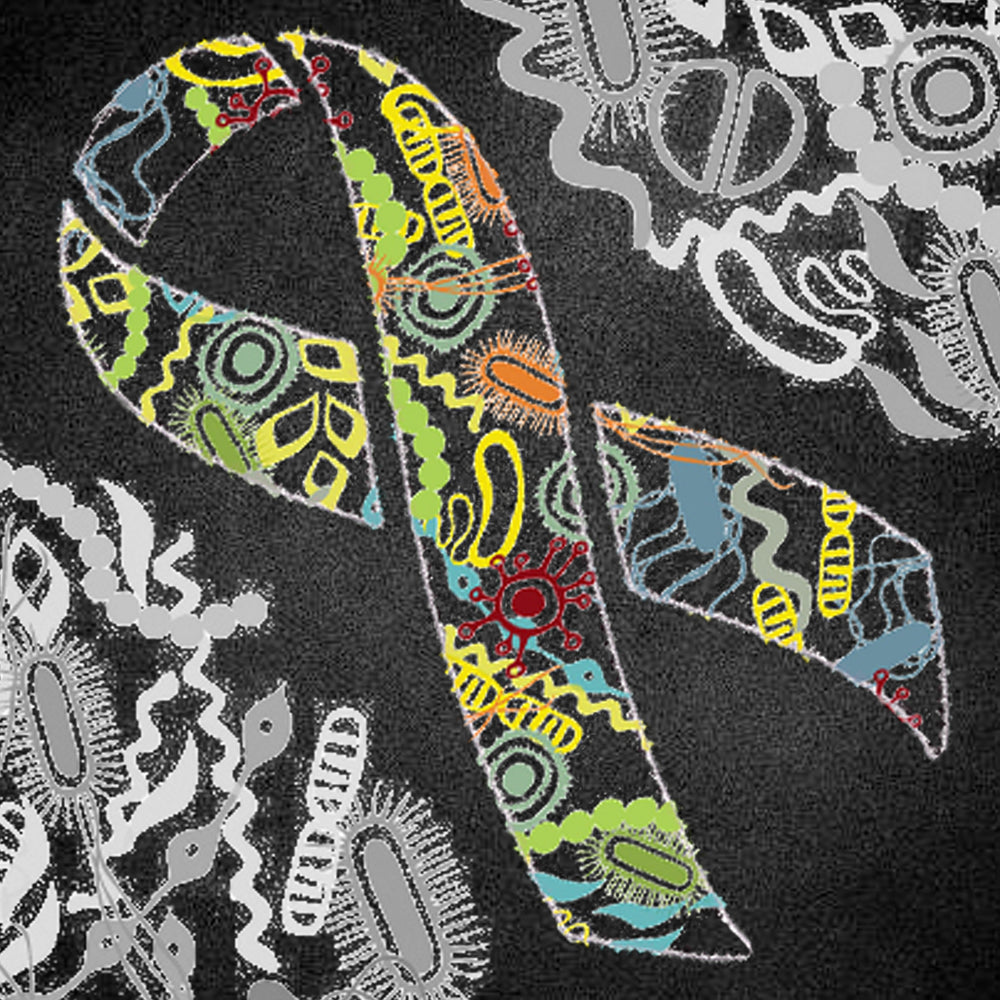
Cancer seems to be everywhere these days. Many of us have been personally affected by it in one way or another. For me it’s very personal. Last year I lost my sister to stage 4 colon cancer. She was a mother of 9 children, foster mom of the year, multiple business owner and limitless energy. So, it was beyond shocking and heartbreaking to see her go through so much suffering and pain.
The good news is that there are powerful agents in the battle against cancer. One such agent is Kefir. Kefir has a remarkable ability to destroy cancer cells (all different types of cancers) without hurting normal cells. But its protective measures is where is really shines. It has the ability to protect against DNA damage that leads to cancer as shown in multiple studies below. It’s simply a healthy and delicious way to stay healthy and limit you or your family’s chances of getting cancer.
Here are some fascinating studies on how kefir helps against specific cancers:
Breast Cancer
One study looked at the effects of kefir and yogurt extracts on beast cancer cells[1]. Kefir that was fermented for 24 hours showed significantly suppressive effects on cancer cells. Amazingly, it was just the cancer cells suppressed as it showed no suppressive impact at all on normal cells. I love this study because it also compares yogurt to kefir. Yogurt also has helps against cancer, but it has to be a much higher concentration. Only .63% for kefir compared to 2.5% for yogurt. But most importantly, kefir decreased the cancerous cell number by 56% vs only 14% for yogurt. So, yogurt does show some protective measures against cancer, but kefir is much better.
Another study used mice instead of directly testing cells[2]. Even though I feel bad for the poor mice, I like these studies because it shows the effectiveness of actual digestion of kefir (and the real-life subsequent processes involved) vs the lab based isolated cell extracts.The study involved mice that were fed a normal balanced diet but then supplemented with kefir or KF (kefir cell-free fraction), injected with breast cancer, fed more kefir and then tested 27 days later. Both the kefir and KF groups shows less tumor breast growth after 27 days as compared to the control. They also showed an increase of IgA cells in the mammary area. Fascinatingly, this increase only happened when the breast cancer was present. It’s not completely understood why, but its likely that the IgA cells are used to bind toxic metabolites from the cancer. Another mysterious protective mechanism powered purely by kefir.
Leukemia
In one leukemia study, it was shown that kefir inhibits the proliferation of leukemia cells as demonstrated on two different leukemia cell lines[3]. Also, it showed proapoptotic effects (which basically means cancer cell deaths) without showing any normal cell death. The study also checked to see if kefir had an effect on metastasis (the ability to spread). They checked expressions of metalloproteinases and found no change. So, in this respect, kefir did not change the levels of metalloproteinases but the authors of the study say that kefir may stop metastasis in other ways.
Another Leukemia study also confirmed the ability of kefir to stop the growth of leukemia cancer cells[4]. They showed that it was effective at all concentrations tested. The effect wasn’t minor either. At one concentration, proliferation reached 98%. It also showed like the other study’s that it did not hurt regular cells.
Colon cancer
Kefir has high amounts of acetic and lactic acid which are suppose to help protect against the DNA damage in the colon that leads to cancer. One study on colon cancer specifically studied the protective abilities of kefir[5]. In the study, the kefir extract significantly slowed the laboratory induced DNA damage at all levels of concentration. In contrast, the unfermented milk (regular milk) showed no protective ability against DNA damage. The authors of the study claim that that its due to the antioxidants in kefir.
Another study on colon cancer shows that once again, kefir kills cancer cells[6]. In the study, kefir also reduced the proliferation of colon cancer cells. Like the leukemia study, they checked metalloproteinases and kefir did not change the expression of them. Thus, indicating no positive affect on stopping metastasis at least in regards to metalloproteinases.
Skin cancer
One study looked at the effects of a kefir extract on different types of human melanoma cells[7]. The study suggests that kefir has the ability to protect cells from UV damage. The kefir resulted in a remarkable decrease in intracellular reactive oxygen species (ROS) which was due to the UVC irradiation. It also recused normal HMV-1 cells from dying due to UVC irradiation. The authors of the study believe that its due to the active ingredients in kefir not simply because of the antioxidant agents.
Bottom Line
The evidence is showing more and more that kefir has some amazing abilities in the battle against cancer. It looks like it has the ability to cause apoptosis (cell death of cancer cells) in a variety of different types of cancers without hurting normal cells. It shows strong protective measures when it comes to colon cancer and skin cancer which is due to both antioxidant agents and active ingredients in the kefir. Even though it is suspected that kefir protects against metastasis, there is no direct evidence when testing the expressions of metalloproteinases.
Keep in mind that these studies only study primary connections between kefir and cancer. In many cases cancer is caused by continual inflammation or immune dysfunction. Kefir has an amazing ability to heal the gut, lower inflammation and improve immunity function. All those are very powerful mechanisms to prevent cancer that can't really be directly tested.
My take from all these evidence-based studies is that kefir is an incredibly healthy food that will keep a body healthy, minimize DNA damage and minimize the risk of cancer. It’s more protective than curative. If cancer is already strongly set or even metastasized, then kefir may not be enough by itself to cure it. Not to say that it shouldn’t be tried, but likely should be used in conjunction with other treatments.
When it was discovered that my sister had cancer, it had already spread to multiple organs We tried a host of diets and natural treatments (budwig, CBD, kefir, keto, enemas, etc). Amazingly the stage 4 cancer was actually declining for many months on healthy dieting. The doctors were stunned by the progress. In the end though it was modern medicine, chemo and a blotched surgery that likely took her life much quicker than it would otherwise. But I truly believe if she had a healthier diet leading up to the cancer, had kefir daily (like I always asked her to), then she may still be here today.
References:
[1] https://www.liebertpub.com/doi/abs/10.1089/jmf.2006.236
[2] https://www.sciencedirect.com/science/article/pii/S0022030207716788
[3] https://www.ncbi.nlm.nih.gov/pmc/articles/PMC3064404/
[4] https://www.ncbi.nlm.nih.gov/pubmed/19778841
[5] https://www.tandfonline.com/doi/abs/10.1080/01635581.2010.516873
[6] https://www.ncbi.nlm.nih.gov/pubmed/25189203
[7] https://www.ncbi.nlm.nih.gov/pubmed/19003113


Leave a comment